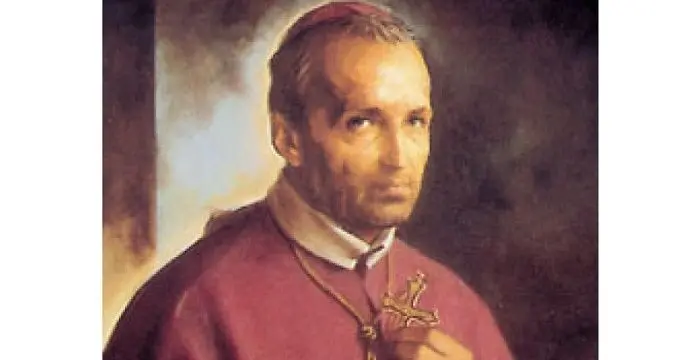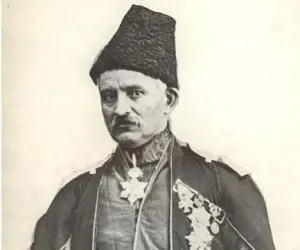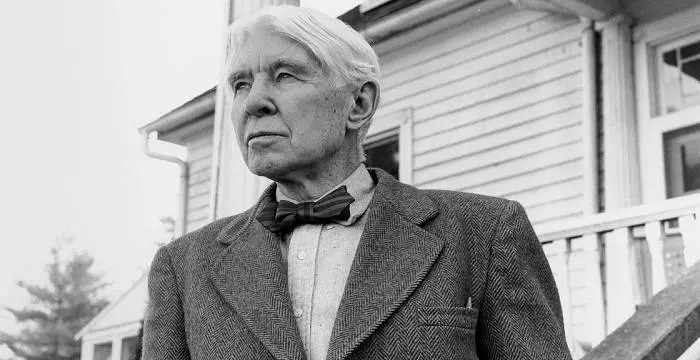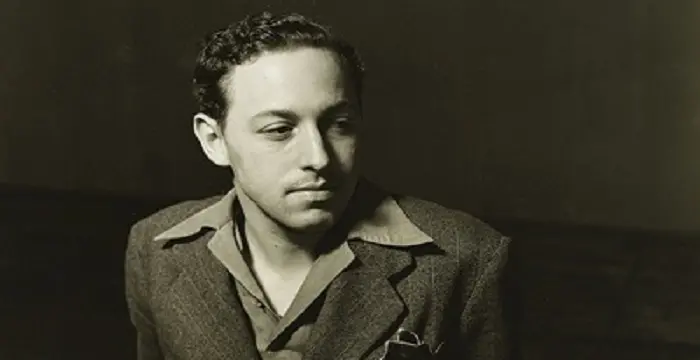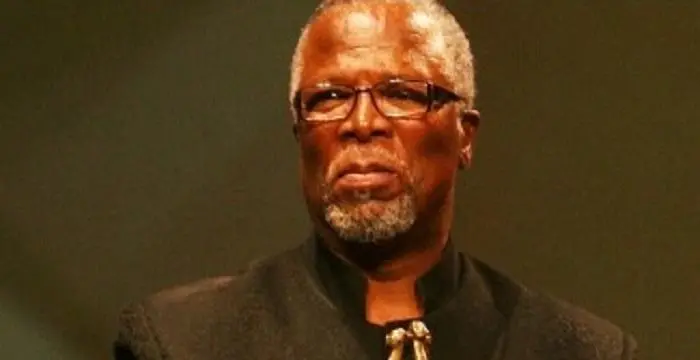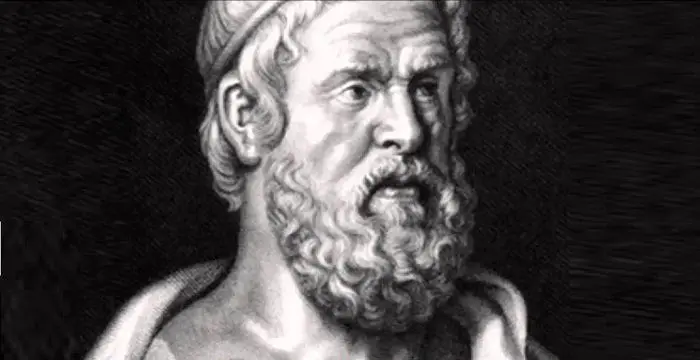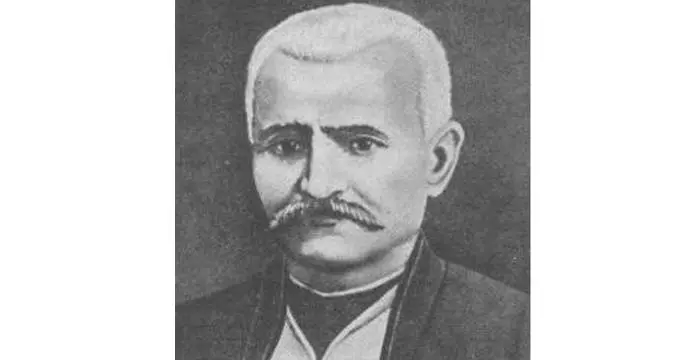
Mirza Fatali Akhundov - Writers, Timeline and Personal Life
Mirza Fatali Akhundov's Personal Details
Mirza Fatali Akhundov was a renowned Azerbaijani writer, philosopher and founder of modern literary criticism.This biography gives detailed information about his childhood, life, works and timeline.
| Information | Detail |
|---|---|
| Birthday | July 12, 1812 |
| Died on | March 9, 1878 |
| Nationality | Azerbaijani |
| Famous | Intellectuals & Academics, Philosophers, Poets, Playwrights, Philisopher, Writers |
| Known as | Mirza Fath Ali Akhundzadeh |
| Birth Place | Shaki, Azerbaijan |
| Gender | Male |
| Father | Mirza Mammadtaghi |
| Mother | Nana Khanim |
| Sun Sign | Cancer |
| Born in | Shaki, Azerbaijan |
| Famous as | Writer and Philisopher |
| Died at Age | 65 |
// Famous Philisopher
Alphonsus Liguori
Alphonsus Liguori was a multi-faceted personality. He was a spiritual writer, scholastic philosopher, theologian and Catholic bishop. This biography of Alphonsus Liguori provides information about his childhood, life, achievements, works & timeline.
Mirza Fatali Akhundov's photo
Who is Mirza Fatali Akhundov?
Mirza Fatali Akhundov was a renowned Azerbaijani writer, philosopher and founder of modern literary criticism. He became famous for writing European-inspired plays in Azeri Turkic language. Mirza was born at a time when his family was facing financial hardships. When he was six-year-old, his mother left his father and went to live with her uncle, who was a highly intellectual and well-read cleric. Mirza grew under his maternal uncle's tutelage and soon mastered the canons of Islamic philosophy and literature. Initially hoping to follow in his uncle's footsteps and join the clergy, Mirza dropped out of theological school to study poetry and Western literature. He then began to produce his own works of literary genius, including comedy plays and brilliantly satirical novels. His lyrical use of Persian and well as his descriptions of Persian culture inspired an entire generation of Iranian leaders. His takedown of corrupt and nonsensical Muslim superstitions made him an early advocate of rational atheism, an ideology heavily promoted by the Soviet Union decades after his death. Mirza's vast output of work ranging from literary criticism to volumes of poetry has lifted him to the status of a colossus in the annals of great Persian, Azerbaijani and Russian writers.
// Famous Writers
Alan Watts
Alan Watts was a famous British philosopher known for his Zen teachings and interpretations of Eastern philosophy. Read more about this great philosopher in the following article.
Malik Yoba
Malik Yoba is an American actor, writer, and singer who made his film debut in 1993 with ‘Cool Runnings.’ Check out this biography to know about his childhood, family life, achievements and fun facts about him.
Carl Sandburg
Carl Sandburg was a famous multiple Pulitzer Prize winner writer and poet. Read more about the life and the works of this prolific writer in the following article.
Childhood & Early Life
Mirza Fatali Akhundov was born on July 12, 1812 in Nukha, now Shakhi, in Azerbaijan. Mirza's father Mirza Mammadtaghi was an ethnic Iranian from Tabriz Province in Azerbaijan and his mother Nana Khanim was a native of Nukha.
When Mirza was six years old, his parents divorced and he moved with his mother to Qaradagh Province, Azerbaijan to live in the household of his uncle, Akhund Haji Alasgar, one of the best-known Muslim clerics of the region.
Akhund was a highly educated man and taught his nephew Mirza how to speak and read Arabic and Persian and introduced him to great books in the region's literature.
Career
In 1832, Mirza's Uncle Akhund accompanied Mirza to Ganja to enroll his nephew at the madrassa attached to Shah Abbas Mosque. He wanted Mirza to study logic and Islamic theology.
While at the school, Mirza learnt calligraphy from the renowned Azerbaijani poet Mirza Shafi Vazeh. Shafi Vazeh discouraged Mirza to pursue religious studies and encouraged him to study the modern sciences. Mirza gave up his religious and clerical education and started studying Russian in order to learn about Russian and European culture..
When uncle Akhund learned that Mirza had dropped out of school, he surprised the family by supporting his nephew's decision. After uncle Akhund used his powerful connections to land his nephew a job, Mirza moved to Tbilisi, Georgia, in 1834, to work for the government as a translator.
In 1836, Akhundov became a teacher of the Azerbaijani language, a post he would hold for the next 13 years.
In 1837, Mirza published his first major poem in the Persian language, 'The Oriental Poem', about the death of the celebrated Russian poet Alexander Pushkin. Akhundov translated 'The Oriental Poem' into Russian and it was soon being read by the leading lights of the Russian intellectual world.
In 1845, Russian theater came to Tbilisi, bringing both Russian and Western plays to the stage for the first time in the region.
In 1850, Akhundov wrote his first play, ‘The Tale of Monsieur Jordan the Botanist and the Celebrated Sorcerer, Dervish Mastali Shah’. The satirical comedy was tremendously successful and played to packed houses in Moscow, St. Petersburg and Tbilisi.
Mirza followed that up with a second hit comedy, 'Molla Ibragim Khalil, Alchemist, Possessor of the Philosopher’s Stone'. In the same year he also wrote 'The Vizier of the Lenkoran Khanate'.
In 1852, he wrote and staged his play 'The Miser’s Adventure'. Mirza also wrote 'The Defenders of Right in the City of Tebriz', which was brought to the stage for the first time in 1855.
In 1857, Akhundov published his first book of prose, 'The Deceived Stars', single-handedly reinventing the genre of Azerbaijani historical writing.
Akhundov went on to publish six separate books on literary criticism, analyzing the works of literary giants in the Arabic and Persian world. Akhundov also penned a number of philosophical works, including 'The Sayings of Dr. Sismond' and 'Response to the Philosopher Hume'.
Mirza had compiled a new alphabet that better reflected the sounds of Azerbaijani Turkish and was easier for people to learn. He sent the alphabet to the linguists and heads of state of Iran and the Ottoman Empire.
In 1863, as part of his alphabet campaign, he went to Istanbul to meet the Ottoman prime minister, Faud Pasha. The matter was discussed in the Ottoman Society of Science and Miza's initiative was widely appreciated. But Iran’s chief ambassador to the Ottoman courts, Mirza Huseyn Khan scuttled the intoduction of new alphabet.
Akhundov petitioned the Turkish government to modify the alphabet once again, but he was again rejected. Returning home, he wrote 'Three Letters of the Indian Prince Kemal-ud-Doula to the Persian Prince Jalal-ud-Doula', a satirical piece that sharply mocked the Ottoman Empire.
Major Works
Mirza came to global attention when 'The Oriental Poem', his evocative reaction to the death of Alexander Pushkin, was translated into Russian, in 1837.
His bitingly satirical play ‘The Tale of Monsieur Jordan the Botanist and the Celebrated Sorcerer, Dervish Mastali Shah’ still plays to packed houses in Azerbaijan.
With over 50 books on philosophy, religious and literary criticism, as well as his dramatic plays, the works of Mirza Akhundov form the backbone of Azerbaijani literature today.
Awards & Achievements
The International Organization of Turkic Culture declared 2012 as the Year of Mirza Fatali Akhundov.
Personal Life & Legacy
He died on 9 March 1878, at the age of 65, in Tbilisi.
Mirza's dedication to the Azerbaijani language led to the adoption of a new script, prompting a giant leap forward in literacy levels and national awareness of Azerbaijani culture.
Trivia
Mirza's nickname was 'Moliere of the Orient'.
The modern Azerbaijani language is written in a script that Mirza Akhundov designed.
During the Crimean War of 1853-1856, Akhundov agitated for his people to join Russia and enter the war against Turkey.
In the Azerbaijani language, Mirza was called 'Akhund's son' or Akhundzadeh. In Azerbaijan today, he is known by the name Mirza Akhundzade. The closest translation of Akhundzade into Russian was Akhundov, the name by which most of the world knows him today.
// Famous Philosophers
Martin Buber
One of the greatest philosophers to have ever walked on earth, Martin Buber contributions to philosophy is a long-standing one. Explore all about his profile, childhood, life and timeline here.
Lao Tzu (Laozi)
Lao Tzu was a legendary Chinese philosopher who wrote the important “Daodejing”. This biography profiles his childhood, life, career, achievements and timeline.
Alan Watts
Alan Watts was a famous British philosopher known for his Zen teachings and interpretations of Eastern philosophy. Read more about this great philosopher in the following article.
Mirza Fatali Akhundov biography timelines
- // 12th Jul 1812Mirza Fatali Akhundov was born on July 12, 1812 in Nukha, now Shakhi, in Azerbaijan. Mirza's father Mirza Mammadtaghi was an ethnic Iranian from Tabriz Province in Azerbaijan and his mother Nana Khanim was a native of Nukha.
- // 1832In 1832, Mirza's Uncle Akhund accompanied Mirza to Ganja to enroll his nephew at the madrassa attached to Shah Abbas Mosque. He wanted Mirza to study logic and Islamic theology.
- // 1834When uncle Akhund learned that Mirza had dropped out of school, he surprised the family by supporting his nephew's decision. After uncle Akhund used his powerful connections to land his nephew a job, Mirza moved to Tbilisi, Georgia, in 1834, to work for the government as a translator.
- // 1836In 1836, Akhundov became a teacher of the Azerbaijani language, a post he would hold for the next 13 years.
- // 1837In 1837, Mirza published his first major poem in the Persian language, 'The Oriental Poem', about the death of the celebrated Russian poet Alexander Pushkin. Akhundov translated 'The Oriental Poem' into Russian and it was soon being read by the leading lights of the Russian intellectual world.
- // 1845In 1845, Russian theater came to Tbilisi, bringing both Russian and Western plays to the stage for the first time in the region.
- // 1850In 1850, Akhundov wrote his first play, ‘The Tale of Monsieur Jordan the Botanist and the Celebrated Sorcerer, Dervish Mastali Shah’. The satirical comedy was tremendously successful and played to packed houses in Moscow, St. Petersburg and Tbilisi.
- // 1852In 1852, he wrote and staged his play 'The Miser’s Adventure'. Mirza also wrote 'The Defenders of Right in the City of Tebriz', which was brought to the stage for the first time in 1855.
- // 1857In 1857, Akhundov published his first book of prose, 'The Deceived Stars', single-handedly reinventing the genre of Azerbaijani historical writing.
- // 1863In 1863, as part of his alphabet campaign, he went to Istanbul to meet the Ottoman prime minister, Faud Pasha. The matter was discussed in the Ottoman Society of Science and Miza's initiative was widely appreciated. But Iran’s chief ambassador to the Ottoman courts, Mirza Huseyn Khan scuttled the intoduction of new alphabet.
- // 9th Mar 1878He died on 9 March 1878, at the age of 65, in Tbilisi.
// Famous Playwrights
Tennessee Williams
Tennessee Williams was one of the greatest playwrights of the 20th century. This biography of Tennessee Williams provides detailed information about his childhood, life, achievements, works and timeline.
John Kani
John Kani is a South African actor, voice actor, playwright and director. Check out this biography to know about his birthday, childhood, family life, achievements and fun facts about him.
Samuel Beckett
Samuel Beckett was an Irish playwright, novelist, theatre director and poet. This biography profiles his childhood, life, works, achievements and timeline
Oliver Goldsmith
Oliver Goldsmith was an Anglo-Irish essayist and novelist of the 18th century. Go through this biography to know in details about his life, profile, childhood and timeline.
Nora Ephron
Nora Ephron was an American journalist, essayist, screenwriter, novelist and blogger. This biography provides detailed information on her childhood, life, works, career, achievements & timeline.
Aeschylus
Aeschylus was an eminent Greek tragedian. Go through this biography to know in details about his childhood, life, profile, and timeline.
Mirza Fatali Akhundov's FAQ
What is Mirza Fatali Akhundov birthday?
Mirza Fatali Akhundov was born at 1812-07-12
When was Mirza Fatali Akhundov died?
Mirza Fatali Akhundov was died at 1878-03-09
Where was Mirza Fatali Akhundov died?
Mirza Fatali Akhundov was died in Tbilisi
Which age was Mirza Fatali Akhundov died?
Mirza Fatali Akhundov was died at age 65
Where is Mirza Fatali Akhundov's birth place?
Mirza Fatali Akhundov was born in Shaki, Azerbaijan
What is Mirza Fatali Akhundov nationalities?
Mirza Fatali Akhundov's nationalities is Azerbaijani
Who is Mirza Fatali Akhundov's father?
Mirza Fatali Akhundov's father is Mirza Mammadtaghi
Who is Mirza Fatali Akhundov's mother?
Mirza Fatali Akhundov's mother is Nana Khanim
What is Mirza Fatali Akhundov's sun sign?
Mirza Fatali Akhundov is Cancer
How famous is Mirza Fatali Akhundov?
Mirza Fatali Akhundov is famouse as Writer and Philisopher
